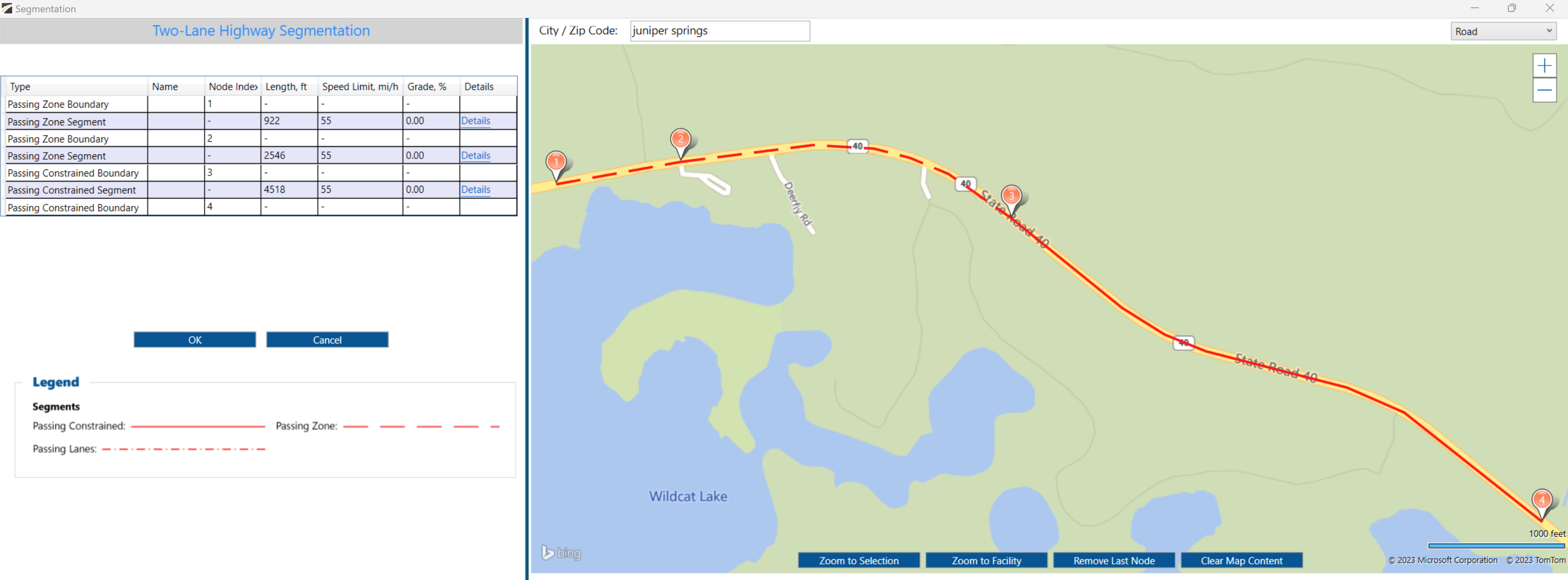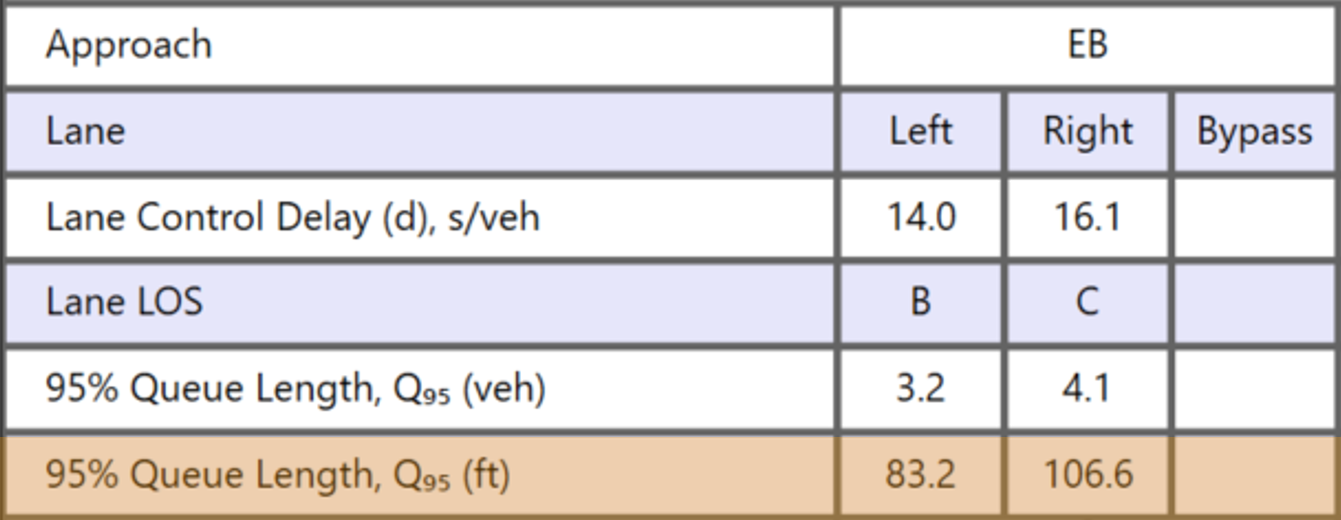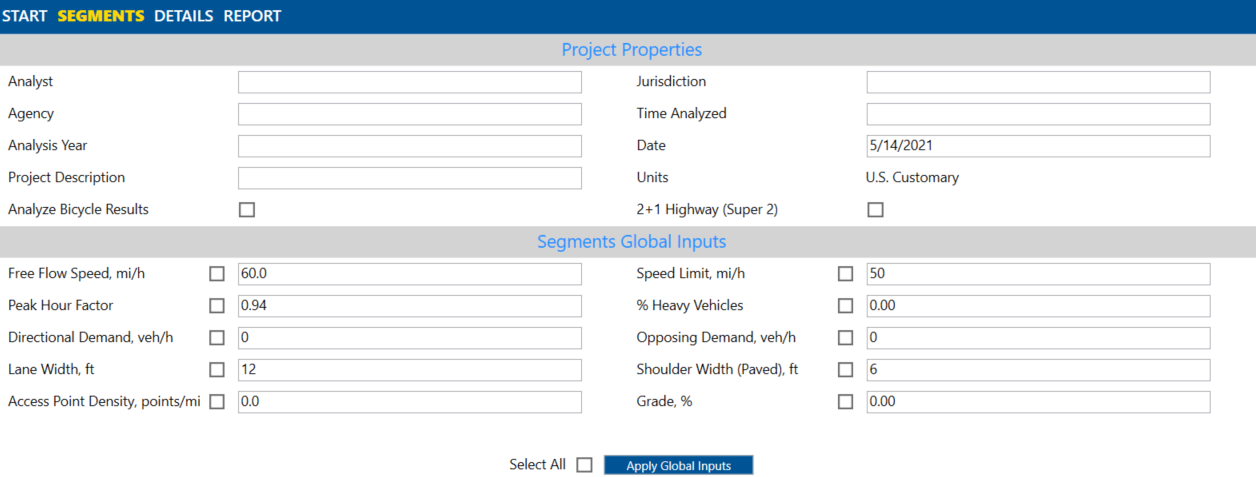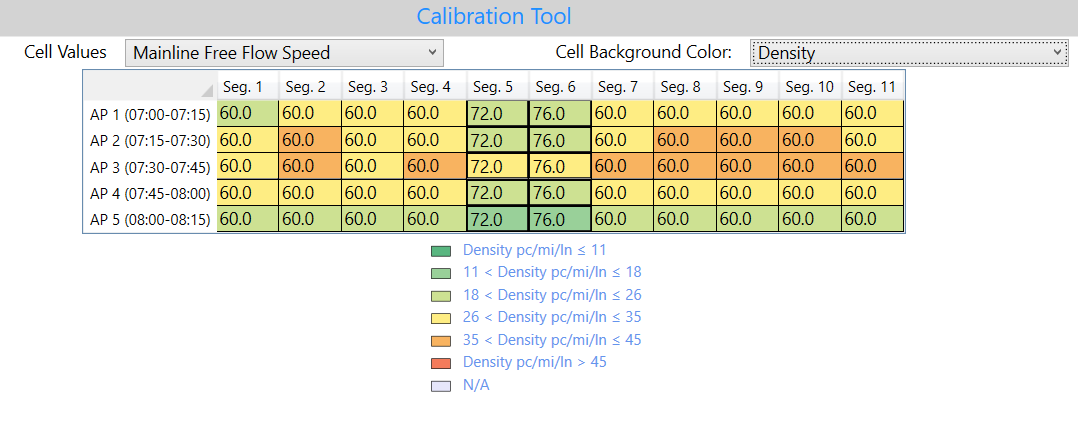
Highway Capacity Software 2023
The reliable software tool that faithfully implements the methodologies from the Highway Capacity Manual

Version Release
New in HCS 2024
The new version of the Highway Capacity Software (HCS) is available from January 2024. The software is updated annually to improve functionality and incorporate updates from the Highway Capacity Manual. Explore the latest additions and features added to the new version release.
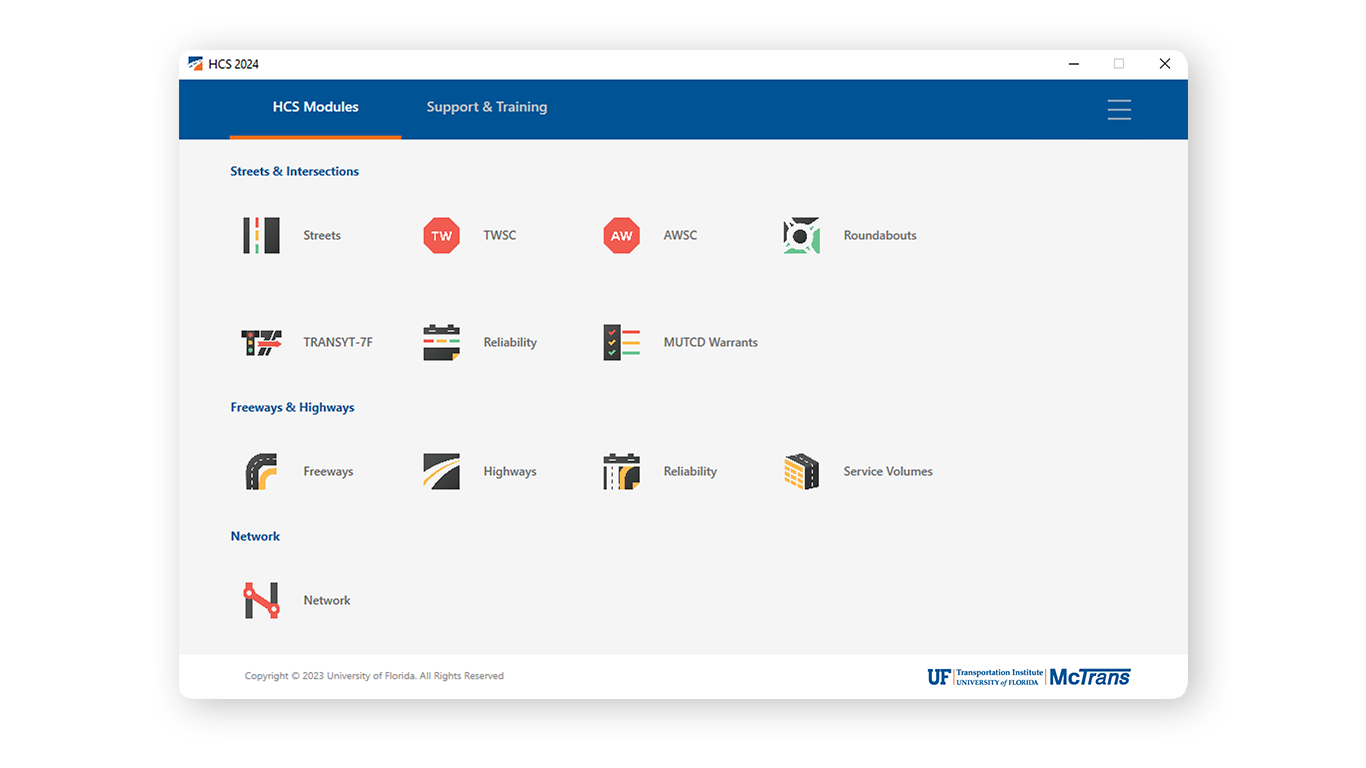
Improved User Experience
Past Update Highlights

Network Module
A new module that implements chapter 38 of the 7th Edition of the Highway Capacity Manual. The network analysis will allow the user to combine interacting arterial and freeway models for the first time. Features include:
- Performance measures for trips over multiple facilities
- On-ramp and off-ramp spillback check

Map-Based Segmentation for Freeways
HCS Freeways module will include a new tool for segmenting freeway facilities on a Bing Maps background, classifying resulting segments according to the HCM methodology for freeways. The map segmentation tool promotes modeling efficiency while ensuring HCM segmentation compliance.
Integrated HCS and HSS Analysis
New input file compatibility between HCS and HSS enables integrated operations and analyses for highways and freeways, including:
- Ability to open HCS freeway/highway files directly in HSS
- HSS safety results may be included in HCS highways and freeway analysis

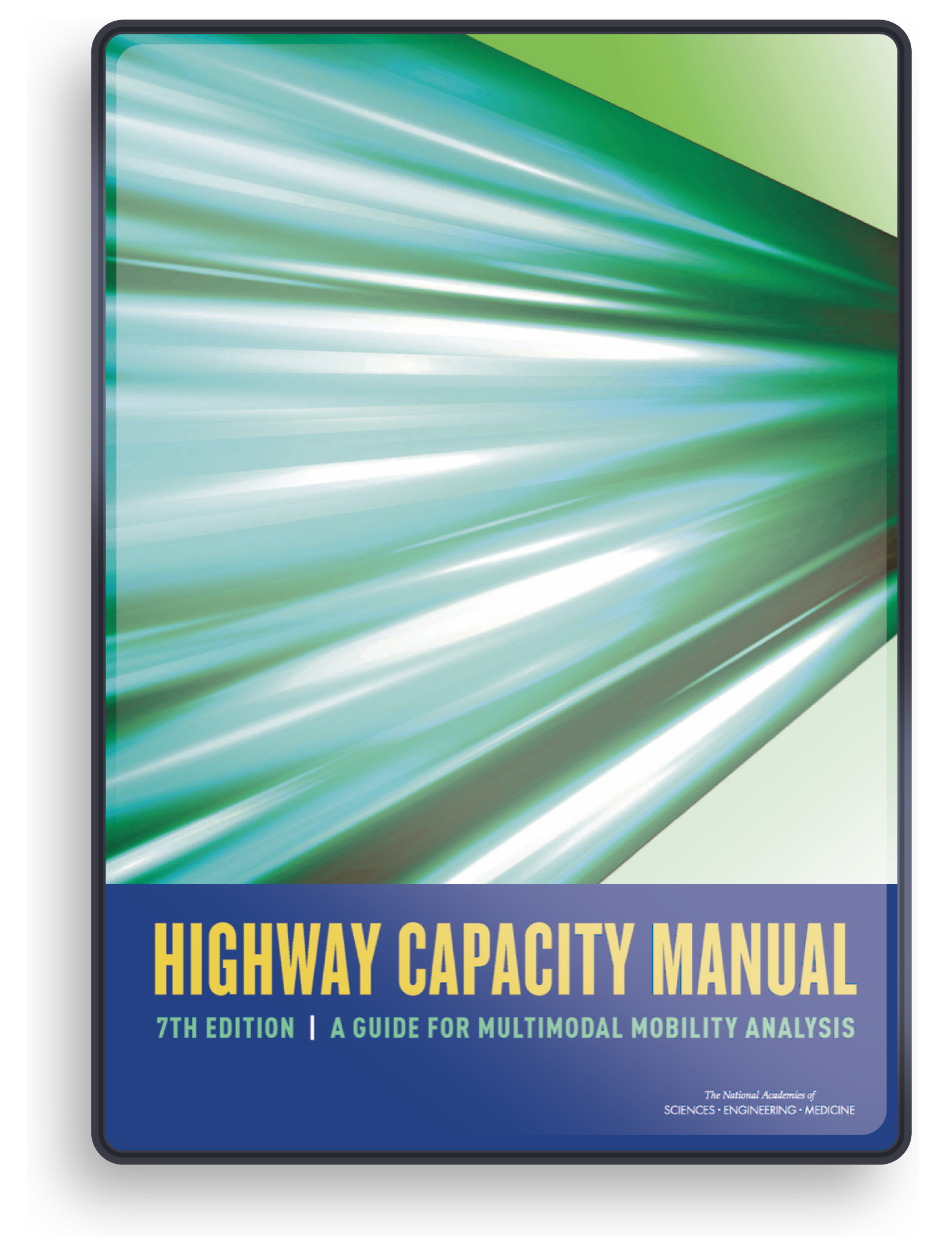
Compliance to the 7th Edition of HCM
The HCS 2024 release incorporates methodologies from the 7th Edition of HCM (2022) updates, including:
Model Confidently with the
All-in-One Highway Capacity Software

Highway Capacity Software
- Adds new option for silent installation

Streets
- Adds connected and automated vehicle (CAV) effects on saturation flow rates
- Disables base saturation flow rate for invalid movements

TWSC
- Adds optional calibration for conflicting flow factors
- Includes other minor bug fixes and improvements
- Provides back-of-queue length in ft.

AWSC
- Improves format of the formatted report to be printed on one page
- Combines Approach Delay and Approach LOS rows in formatted report
- Includes other minor bug fixes and improvements

Freeways
- Allows importing facilities from precoded segmentation database
- Updates the facility graph
- Adds a new Calibration page to show input parameters and background colors based on outputs on the same table

Freeways (cont.)
- Displays safety analysis results in text reports for freeway segments based on Chapter 18 of Highway Safety Manual (HSM) 1st Edition
- Adds Proportion of CAVs and Ramp Demand Adjustment Factors to Segments Global Inputs
- Adds input for Vehicle Value of Time (VOT) and result for Total Delay Cost

Highways
- Displays safety analysis results in text reports for highway segments based on Chapters 11 and 12 of Highway Safety Manual (HSM) 1st edition
- Updates Two-Lane chart to use Adjusted Follower Density instead of Follower Density
- Updates Two-Lane reports when d/c > 1

Service Volumes
- Implements connected and automated vehicle (CAV) service volume tables in text reports

Highways
- Adds new Network module to provide network-level spillback analysis based on Chapter 38 of 7th Edition of HCM
- Adds modeling of network with urban street facilities and freeway facilities
- Estimates O-D-based travel time
